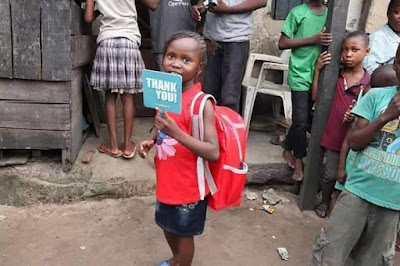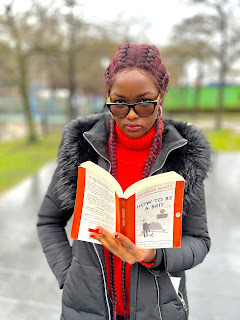Who Gets To Tell The Story? - "Africa The Hopeless Continent"!
 |
The just-completed Global Reporting Summit organized by One World Media on 12.20.21 with the Theme: “Who Gets to Tell The Story?” was one of the most brilliant conferences I’ve attended this year, bringing key global issues to the table. |
It was my first time meeting and listening to Moky Makura a Middle East Contributor and CEO of Africa No Filter. I really admired how insightful her speech was and it left me extremely inspired.
Moky spoke about “How influential the media is in creating and changing narratives”. Once I saw the topic I didn’t think twice before buying the ticket to attend the event because I felt this was one interesting issue that needed to be talked about more often.
Moky began her speech with two interesting questions:
- When I say Africa, what comes to your mind?
- What influences your perspective about Africans?
And she went ahead to highlight, based on her organisation’s research, some factors that influence the way people think and speak about Africa; they include:
- Poverty
- Conflict
- Corruption
- Disease
- Poor leadership
These are some of the factors that influence how many people see Africans. And it reminds me of how one of my foreign classmates on a group introduction asked whether I’m from the rural part of Nigeria. I later came to realize that her question was not because she wanted to really know where I lived, but rather to confirm her preexisting stereotypes which will later create a platform for her to evaluate my intelligence and background.
And for such situations one can really not blame these people for harboring such stereotypes without also including the media, for only telling the “single story” which Chimamanda Ngozi Adichie talked about - the story of Africa being broken, dependent and lacking agency, as further highlighted by Moky Makora in her speech. "The problem with single stories is not that they aren't true but that they are incomplete" - CNA. This is why there is a dire need for storytelling to change hands.
Who tells the story?
Research shows that there is only less than 3% content about Africa on Wikipedia. What that means is that there is more content about Paris (a country) than the whole of Africa (a continent). And from that 3%, only 1% of the content was written by Africans themselves.
More research by Moky’s organisation shows that journalists are used to writing about stereotypical things about Africa. Take away sad stories from journalists and they will be short of ideas of what to write about Africa. This has affected not only the western perception of Africa but has also affected Africans themselves as research reveals that 81% of Africans read loads of negative stories about Africa.
This is why we need more alternative stories, more storytellers who will talk about Africa’s other half.
I have been in a room where people were asked what counties they’d like to visit. And out of over 10 persons who said Germany, Netherlands, America, Paris, none of the 54 countries in Africa was mentioned.
Why?
Why would anyone dream of visiting a place which for so long had only been identified with poverty, disease, and failures, by the media?
This is the injury that the media and its storytelling have done to Africa, and it needs to be ameliorated. The world is tired of hearing sad news.
In Daniel Miller’s words, the world is suffering from “compassion fatigue”. And even when we share these stories because we need to and because they are real, we also need to give context and nuance about the stories that we’re telling. With the advent of Social media, everyone has become a journalist, feeding the world with stories that may or may not have been confirmed.
As a Media enthusiast, Writer, or Communications specialist, when you’re writing a story ask yourself “what narrative am I feeding”?
To tell better stories Moky concluded with the following:
- We need editors with vision.
- We need to have more nuanced reporting. Poverty, corruption, and conflict are not the single stories of Africa.
- Better storytelling practices.
"Stories matter, but many stories matter"! "Stories have been used to dispossess and to malign but stories can also be used to empower and to humanize" - CNA.
Hope this makes you think about what you’re writing next!
Facebook, Instagram, LinkedIn.











J'ai été ravie de lire ceci
ReplyDelete